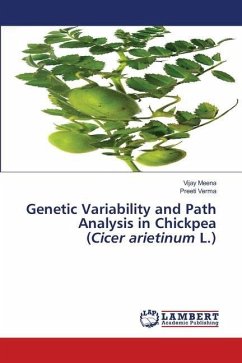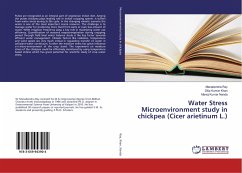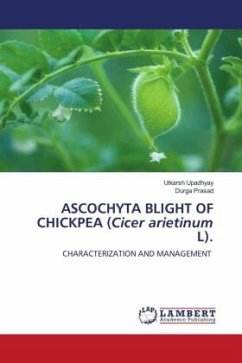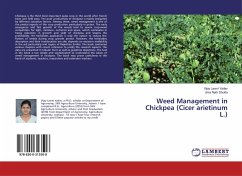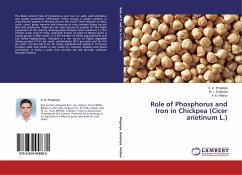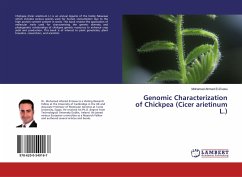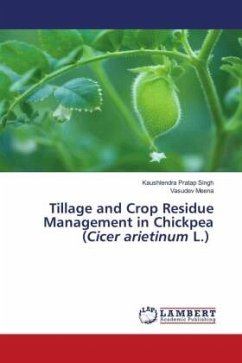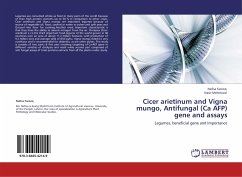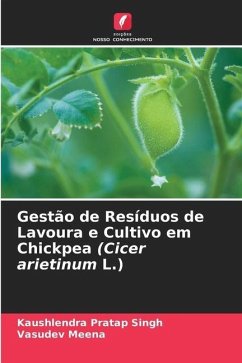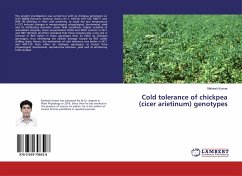
Cold tolerance of chickpea (cicer arietinum) genotypes
Versandkostenfrei!
Versandfertig in 6-10 Tagen
27,99 €
inkl. MwSt.

PAYBACK Punkte
14 °P sammeln!
The present investigation was carried out with six chickpea genotypes viz. ICCV 88506 (Tolerant, National check), HC-1, H03-56, H07-120, H08-71 and H09- 96 differing in their cold sensitivity, to study the low temperature (5°C) induced changes in morphological, physiological, biochemical, yield and its attributing character under field conditions. Higher activities of antioxidant enzymes, lower accumulation H2O2 and MDA content in HC-1 and H07-120 than all others indicated that these enzymes play a key role in removal of ROS better in these genotypes than all other six chickpea genotypes, thu...
The present investigation was carried out with six chickpea genotypes viz. ICCV 88506 (Tolerant, National check), HC-1, H03-56, H07-120, H08-71 and H09- 96 differing in their cold sensitivity, to study the low temperature (5°C) induced changes in morphological, physiological, biochemical, yield and its attributing character under field conditions. Higher activities of antioxidant enzymes, lower accumulation H2O2 and MDA content in HC-1 and H07-120 than all others indicated that these enzymes play a key role in removal of ROS better in these genotypes than all other six chickpea genotypes, thus minimizing the cellular damage caused by ROS under chilling stress. Hence, the mechanism of cold tolerance was better in HC-1 and H07-120 than other six chickpea genotypes as found from physiological, biochemical, reproductive behavior, yield and its attributing traits studied.



